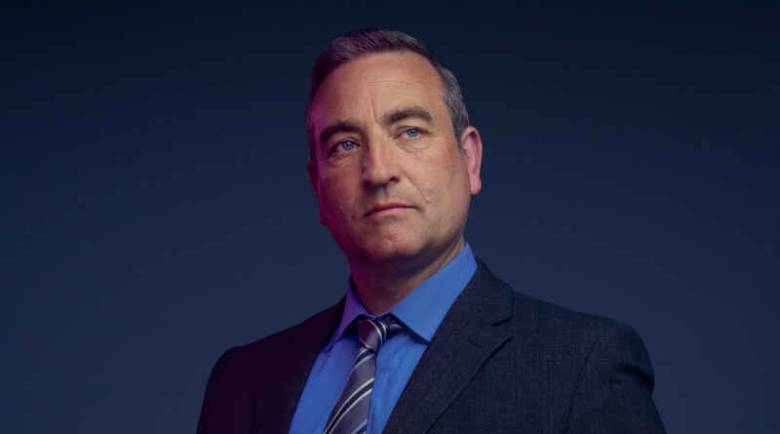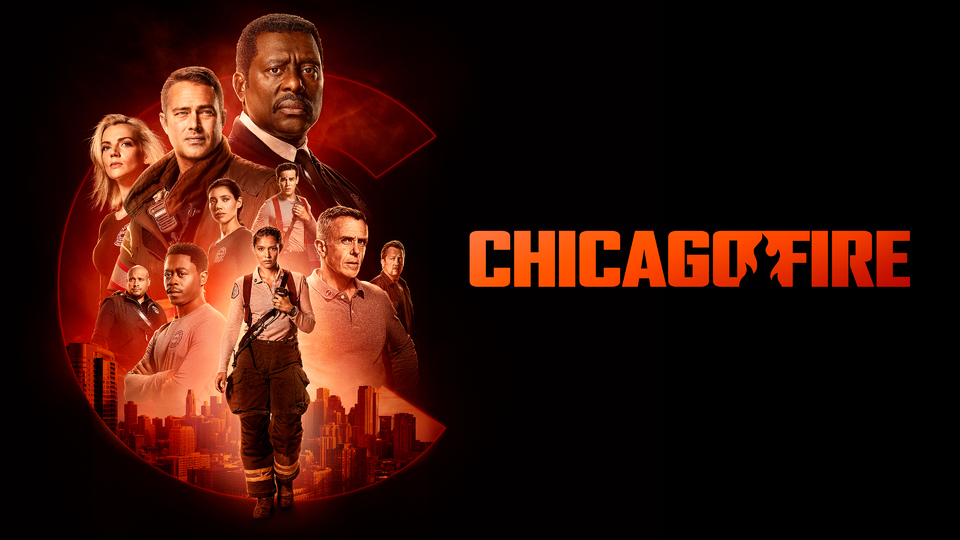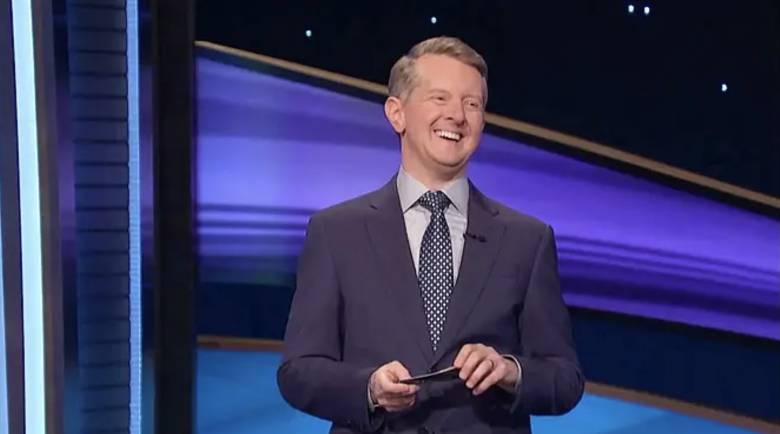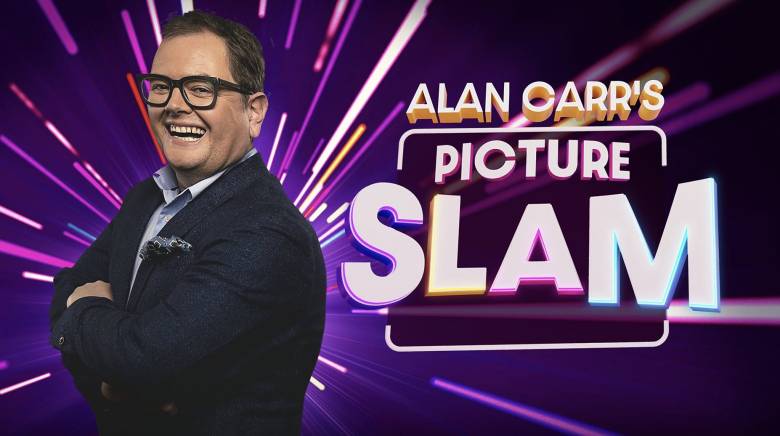What reaction did you have to the first series?
The reaction from all my friends and family, and from the general public, was tremendous. Its initial reaction from Alibi was terrific enough, but then we were given a bonus when it appeared on the BBC, which reached a whole new audience. I feel that they covered a younger audience on Alibi and a slightly older demographic on the BBC, so we ended up with all bases covered.
Is it easier to slip back into character second time around?
Yes! When you do something for the first time, you need to try and get a foothold, and it can take a little bit of time to do that. You’ve got to work through the story, the surroundings, you’ve got to build relationships with people that you don’t know, and all that stuff, so it can be a bit daunting to begin with. It’s so much easier the second time!
There’s a lot of technical stuff and jargon to get through too.
For Laura, that’s the nature of her character, and what the show’s about – she’s got to contend with all the data and information, and she has to juggle that. For me, in series one, it was all about juggling the information and the conjecturing of the case. The difference this time, certainly for me, is that we start to delve into Neil and Sarah’s domestic affairs and personal lives a bit more. That’s what you want to be doing, because otherwise it becomes quite difficult to give the audience an appreciation of what your character is like as a person through their job. They have to make up their minds about him and what his life might be outside of the job, but you don’t get to see that. This time, you’re definitely given a real glimpse into his home life, which really opens things up, and of course it’s much more fun and challenging to play
And we get to meet Neil’s wife, Azra …
This is going to be a shock to some of the characters, as well as the audience! She wasn’t even mentioned in series one. Sarah and Kathy have never met her, so she’s something of an enigma. The good thing is that the characters meet her at the same time as the audience. There’s no question it’s awkward, and you can see the way they behave around her, and how Neil behaves around his wife, and the way he behaves around Sarah. So right off the bat, people in the audience will get a taste of what might come. It’s important that it happens so soon in the story, so that’s why we start with that.
Would you describe Neil as happily married?
His wife is a good person, and she’s also a very capable police officer – she’s a data information expert. We get to understand a little bit of their history, but we know that they’re very close and that they’ve been together for a long time. But the attraction that he has with Sarah is still there. The stakes are very high.
He’s not a philanderer though, is he?
No, not at all. He’s genuinely a nice, straightforward, honest man who is clearly having a life crisis, if you can call it that. His primaeval instincts are playing on him. He’s being pulled around a little bit. He has this beautiful wife, but he has this attraction for another beautiful woman. He’s definitely not one for playing the field, let’s put it that way.
Their jobs are terribly intense, which is always going to bring people together, isn’t it?
Yes, and also their proximity – they work very closely, in intense situations. They’ve got their heads together in the lab, and they have to meet and discuss the facts of the case and any information that’s brought up from forensics, so they do spend a lot of time in close company. They both understand they’ve got responsibilities elsewhere, but you can’t help that little spark that happens between people. Sometimes, it’s unavoidable. And, of course, their success on the previous case brought them closer together.
How was it working with Laila Rouass?
She was great, and a brilliant addition to the Traces family. Very good, solid, a lovely person too, and very committed to the story. Azra’s a very different type of person to Sarah, so Neil has a very different type of relationship with each of them. Of course, he’s much more familiar to Azra – they’re confidantes, friends, they’re husband and wife, they know each other’s idiosyncrasies back to front, and there’s a real comfort between them. Laila was terrific, as she allowed that to happen straightaway. It’s an important storyline, because you don’t often see a middle-aged romance on television, which is what we’re dealing with here. We’re dealing with people of about the same age, at the same time in their life, going through a similar thing. It’s sweet in a way, because it’s kind of harmless – but of course, the temperature is hotting up, and it gets more complicated as the episodes go on. Amelia Bullmore and Jess Williams are fantastic, and the scripts were just superb, especially when the fireworks begin to go off. It’s a real roller-coaster.
Do you like Neil?
I do, actually. He reminds me of myself. He’s laid back, easy-going, but he cares very much about the people that he works with, and the people around him, and about the victims. He’s a very empathetic man. He’s not cold. He’s very passionate about getting a result, so he works very hard.
Is that kindness part of the appeal for you?
Yes, because it’s much more normalised. It’s not sensationalised through clichés. So here we are, a man in his fifties – I mean, I’m hardly Dolph Lundgren! – an ordinary man who does a specific job and is very dedicated to it. There’s no sliding over bonnets, jumping through windows or chasing people down stairwells. He’s a proper, plodding detective. Everything takes its time. We’re not talking about fast results here. That was the response I was getting from the audience, particularly from people who have worked in the police force. They would tell me, “It’s so right, because he’s just an ordinary guy. That’s what it’s like. The methodical plodding of detective work is a slow process.”
Authenticity is incredibly important, and it’s very well researched, isn’t it?
Amelia is driven by the police and the scientists. She absolutely doesn’t want to make anything up. The stories are fictional, of course, but they do have a basis in truth. There’s no question about the reality of the antagonist’s behaviour, which is very real. John Rogers, the police advisor, is on hand all the time, likewise with the ladies at the Leverhulme Research Centre for Forensic Science, the science has to be right. She cares very much not to upset them, and to make sure it’s done right, because anything less than perfect isn’t good enough.
Do you enjoy those funny little facts that you find out as you go along?
Those are the kinds of things we laugh about, because we go, “We’ve really got to say that?!” Jennifer and Laura get quite a lot of that, so there are real moments of humour amongst all the serious stuff.
And are there any particular facts that you’ve learned this time around that you love?
The most interesting stuff for me in this series is about the antagonist. Their reason for doing what they do is so new, so fresh, so original, that it’s not been dealt with in drama before. I won’t give too much away, but there’s a focus on the incel movement which I didn’t even know about until we started to work on it. It’s educational, and I think it will lift a lot of eyebrows. The work that’s been done on this narrative, and the thought behind it from Amelia and Jess and Val, the whole gang, is exceptional. The series has moved on so far from where we left off, and taken a massive leap forward.
Do you enjoy working with a female-led cast and crew?
This isn’t the first time I’ve worked on a female-led production, and I’m very comfortable with that. It’s created by, written by, produced and directed by women, and of course the cast is led by women. They look at things differently, and why not? It’s a very successful template, I have to say. I’ve also worked for great directors who are men, who can also create a very realistic, very interesting atmosphere around the set with a lot of positivity. But I’m very, very happy to support the work and the talent that women offer. They’re my associates, my friends, and also my bosses, my employers. I admire them and respect them. But truthfully, when I’m doing the job, I don’t think about it. I treat everyone the same, with mutual respect.
Are you proud of the fact that Dundee has been put on the map?
Oh, completely. One hundred percent. Dundonians are very proud of their own, and Dundee itself has a very long history, and sometimes a dark history, too. But nevertheless, it’s an amazing place. Geographically amazing position, surrounded by beautiful scenery. It’s on an estuary, and it’s right on the coast so it has a lot to offer. It’s a truly international city with a couple of universities, art schools, and one of the biggest teaching hospitals in Western Europe. It’s a great shame that we weren’t able to shoot more there, because the city deserves to have us there. Of course, it’s not an accident, because the Leverhulme Research Centre for Forensic Science is based in Dundee, and of course Val McDermid is a great fan of Dundee, she lives just down the road in Fife. It went through some dark times in the eighties, but its recovery is remarkable. I’m delighted that it’s being promoted on television. Every time we go, they are very welcoming.
Do you visit Dundee often?
I didn’t for many years when I was younger, as I was in repertory theatre, but for the last three years, I’ve had a son who’s been living and working in Dundee, so we’ve been spending a bit more time there. It’s a great place.












